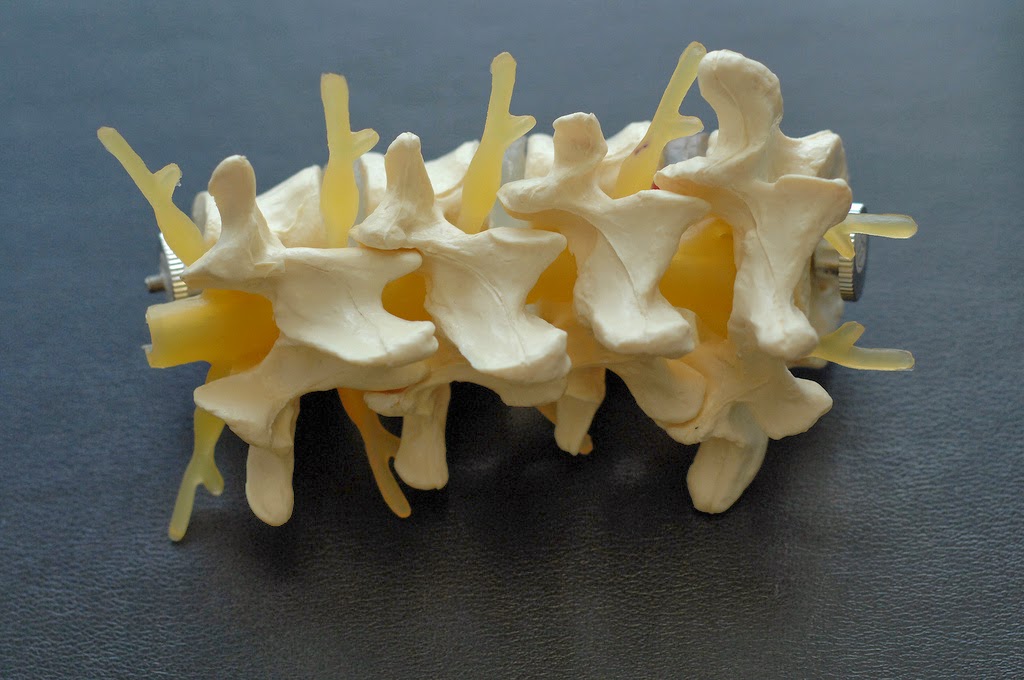
“Spine once more” found on flickrcc.net
One of the frustrations for solicitors helping victims of accidents with their compensation claims is where medical records show that the injured person did not take up all the treatment which was available to them while recovering from their injuries.
The “pain and suffering” value of your personal injury claim depends, broadly, on the severity of the initial injury and the length of time it takes you to make a full recovery.
You rarely win if it’s “you versus your medical records”
Whilst your own evidence about the duration and extent of your symptoms will carry some weight, it is likely to be trumped by anything inconsistent contained in your medical records.
So, for example, it will be difficult to argue two years after an accident that you have continuing shoulder pain related to the accident if your GP referred to you for physiotherapy at the 6-month mark and you failed to attend at all or stopped going for treatment before you were discharged.
The abbreviation “DNA” (“Did Not Attend”) is never an encouraging thing to see in medical records.
The likely line to be taken by the insurer (or, for that matter, any court) in these circumstances is that you must have made a significant recovery, if not a full recovery, by the time you failed to attend the appointment.
Of course, breakdowns in communication do occur. Sometimes the hospital sends the appointment card to the wrong address or it could be that you were simply too ill at the time to take them up on the appointment and let them know you would not be attending.
But the onus will be on you to explain away the failure to attend and, at best, it will make it difficult to maximise the value of your claim.
How to recover the situation if you think you’ve missed an appointment
As soon as you realise you may have missed a medical appointment, the best idea is to contact the medical professional concerned and see if you can rearrange it.
You can do this by telephone in the first place but it is a good idea to follow up in writing, setting out any (reasonable) explanation for your non-attendance.
This written communication will then form part of your medical records and shore up the apparent problem caused by the missed appointment. In turn, it will minimise the risk of the failure to attend undermining the value of your claim.
Contact us for help
We are happy to help with any questions relating to possible personal injury claims. You can contact Peter Brash on 01343 564813 or email him via peter@grigor-young.co.uk All initial enquiries are free of charge and without obligation.